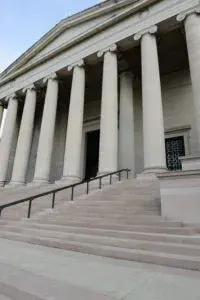By Meril Mathew Joy and Shilpi Sharan
The case that has transcended into new definitive realms over the course of its proceedings over nearly a decade, has again found a newer turn recently when the U.S. Supreme Court accepted a petition by Google to review all prior decisions taken by the Federal Circuits in the matter at hand.
The case began when Oracle America filed an infringement suit against Google for the use of Oracle’s Java Application Programming Interface (API) in the Android software, which was initially dismissed. The dismissal was well received by the computer scientist community as well who filed an amicus brief in support of the dismissal. It was further stated by the amici that the reversing of this decision would dangerously undermine the established prospects of computer scientists who depend on the open nature of APIs.
Basically, the open nature of APIs is essential to create and operate new software and this open nature of APIs is also advocated for maintaining compatibility standards. This is because the APIs provide a functional base for developers for their codes to work (in a specific manner) when entered, without having to code for such functional operations. In the case at hand, Google worked on the Android software using a cleanroom and making paths by themselves although relying on the Java open source.
A brief timeline of the Google-Oracle conflict is as under:
| Year of Filing Claims | Court and Parties |
Year of Order and Decision |
| 2010(Suit initiation) | District Court for the Northern District of California · Oracle Inc. sued Google LLC for infringement of Copyright and Patents. Pertaining to the APIs |
· Decided in May, 2012 · The Court held the APIs are not subject to copyright laws as it is not a copyrightable matter. |
| 2012(Appeal) | U.S. Court of Appeals for the Federal Circuit · Oracle appealed the ruling of the District Court in the above matter. · Electronic Frontier Foundation (EFF) filed an amicus brief on behalf of many computer scientists requesting the Federal Circuit to uphold its former ruling. |
· Decided in May, 2014 · U.S. Court of Appeals (Federal Circuit) reversed the previous ruling. However, leaving the possibility open for the defense of fair use for Google. |
| 2014(Review Petition) | U.S. Supreme Court · Google filed a petition for the review of the decision of the Federal Circuit. · EFF filed another amicus brief on behalf of many computer scientists asking the U.S. Supreme Court to grant Google’s petition for review and reverse the ruling of the Federal Circuit. |
· Decided in June, 2015 · U.S. Supreme Court denied the petition. |
| 2016(Trial) | District Court The case returned to the District Court for trial based on the fair use defense by Google. (Pursuant to the scope left open by the U.S. Court of Appeals decided in 2014) |
·Decided in May, 2016 · A jury unanimously agreed to the fair use defense put forth by Google. |
| 2017(Appeal) | U.S. Court of Appeals for the Federal Circuit · Oracle appealed the ruling of the (jury) of District Court . · Electronic Frontier Foundation (EFF) filed an amicus brief on behalf of many computer scientists requesting the Federal Circuit to uphold the jury’s verdicts. |
· The Federal Circuit again reversed the ruling of the District Court and held that Google’s use was not a fair use as a matter of law. |
| 2018(Petition) | U.S. Court of Appeals for the Federal Circuit · Google filed a petition for a rehearing of the case and EFF filed an amicus brief in support of the petition. |
·Decided in August, 2018 ·The Federal Circuit denied Google’s petition. |
| 2019(Petition) | U.S. Supreme Court · Google filed a petition for the review of both the decisions of the Federal Circuit. · EFF filed another amicus brief on behalf of many computer scientists asking the U.S. Supreme Court to grant Google’s petition |
· Decided in November, 2019 · The U.S. Supreme Court granted the petition by Google. |
The current case at hand is a classic example of the ambiguity of copyright laws around the globe. Having realized the essentiality of APIs, the fate of many software developing giants’ rests on this judgment. Names such as Microsoft, Mozilla Corporation and Red Hat Inc. have filed amicus briefs in support of the latest petition by Google that got allowed.
However, at the current juncture the case can sway either way, with potential of long term impacts on the past, present and future of software development given the extensive use of APIs in the software industry. The main use and benefit of having open APIs is the interoperability it provides for software to function on most devices. Whatever may come, the judgement of this case will re-shape a niche aspect of software development completely different.
Related Posts


